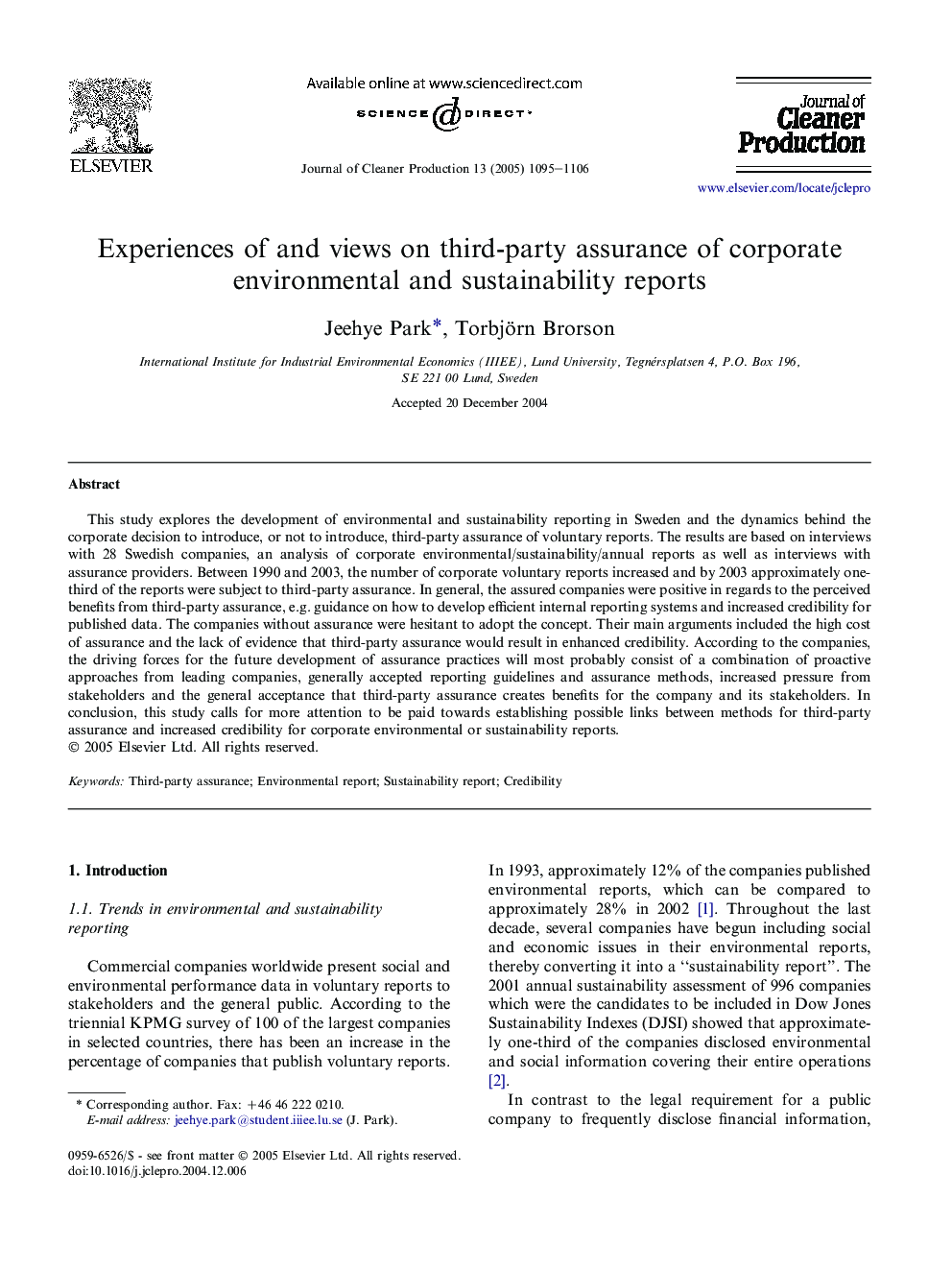| Article ID | Journal | Published Year | Pages | File Type |
|---|---|---|---|---|
| 9825904 | Journal of Cleaner Production | 2005 | 12 Pages |
Abstract
This study explores the development of environmental and sustainability reporting in Sweden and the dynamics behind the corporate decision to introduce, or not to introduce, third-party assurance of voluntary reports. The results are based on interviews with 28 Swedish companies, an analysis of corporate environmental/sustainability/annual reports as well as interviews with assurance providers. Between 1990 and 2003, the number of corporate voluntary reports increased and by 2003 approximately one-third of the reports were subject to third-party assurance. In general, the assured companies were positive in regards to the perceived benefits from third-party assurance, e.g. guidance on how to develop efficient internal reporting systems and increased credibility for published data. The companies without assurance were hesitant to adopt the concept. Their main arguments included the high cost of assurance and the lack of evidence that third-party assurance would result in enhanced credibility. According to the companies, the driving forces for the future development of assurance practices will most probably consist of a combination of proactive approaches from leading companies, generally accepted reporting guidelines and assurance methods, increased pressure from stakeholders and the general acceptance that third-party assurance creates benefits for the company and its stakeholders. In conclusion, this study calls for more attention to be paid towards establishing possible links between methods for third-party assurance and increased credibility for corporate environmental or sustainability reports.
Keywords
Related Topics
Physical Sciences and Engineering
Energy
Renewable Energy, Sustainability and the Environment
Authors
Jeehye Park, Torbjörn Brorson,
